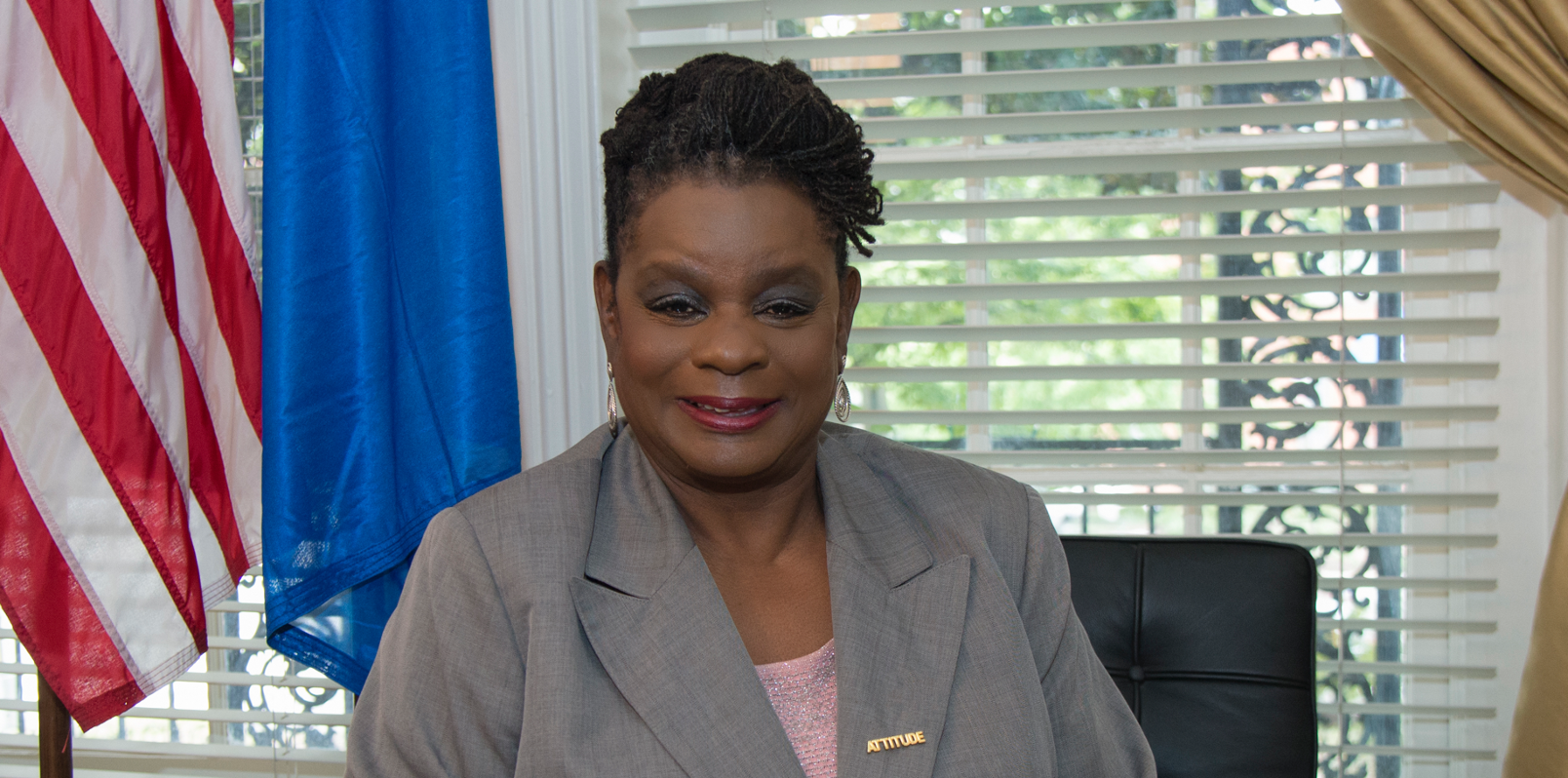One week before the Wisconsin state primaries Gwen Moore wasn’t concerned about defending her congressional seat—the longtime legislator ran unopposed. But the mother of three was hard at work attempting to navigate the unprecedented territory of supporting a political campaign amid the backdrop of an unpredictable pandemic.
“I’m planning a Zoom meeting for a week from now, a Zoom night meeting,” Moore candidly shares. “Trying to plan that now, a watch party for my son, who’s running for state representative.”
Moore’s dedication to her community has clearly rubbed off. And it’s also served her well during her decades-long political career. At 69, the proud member of the “Baby Boomer cohort” may need a little assistance maneuvering six meetings a day via Zoom and Webex (who doesn’t?), but when it comes to drafting policies that speak to Wisconsin’s 4th Congressional District, she is solid as a rock. Come November, the eight-term incumbent is expected to be easily reelected to represent the district that Hillary Clinton swept in 2016.
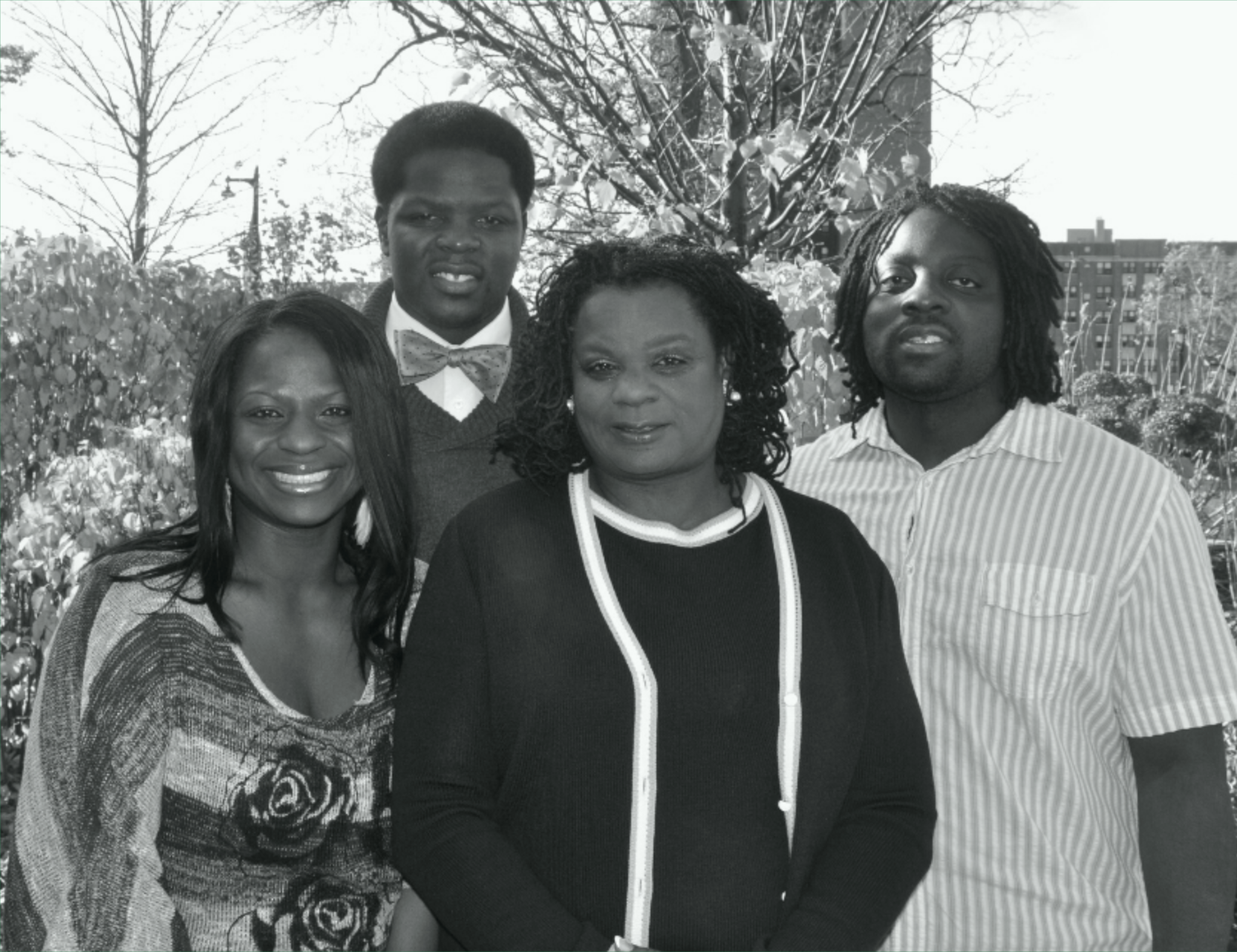
Despite having favor among the residents of Milwaukee and its surrounding areas, the city native tells ESSENCE that she’s not in Congress to rest on her laurels. “As a Black woman in the United States Congress, I am very, very committed to getting a fair shot for Black people, but for all people of color, and for all people,” Moore shares. “I really have understood the struggles of being a single parent, of not having health care, having the lights turned off, the gas turned off. And no matter how high a status I’ve achieved in politics, I’ve never forgotten where I came from.”
Moore has achieved quite a bit, especially during her latest term. After 14 years in Congress, the first African-American woman in Wisconsin history to serve in the U.S. House of Representatives made her debut on the Committee on Ways and Means. “I’m almost like a newborn baby on this committee,” Moore jokingly states. The Congresswoman of 15 years admits she spent most of her time on Capitol Hill working to occupy a seat on the committee because she understands what her presence could mean for some of the country’s most vulnerable people. Decisions regarding Social Security, Medicare, welfare reform, foster care and the Earned Income Tax Credit, among others, fall under the jurisdiction of Ways and Means. This is the work Moore says she was sent to do.
“I was on welfare myself and the system does not do a thing to help lift you out of poverty at this point. And by God,” Moore continues, “if we say we’re going to help lift people out of poverty, I think we ought to live up to that creed.”
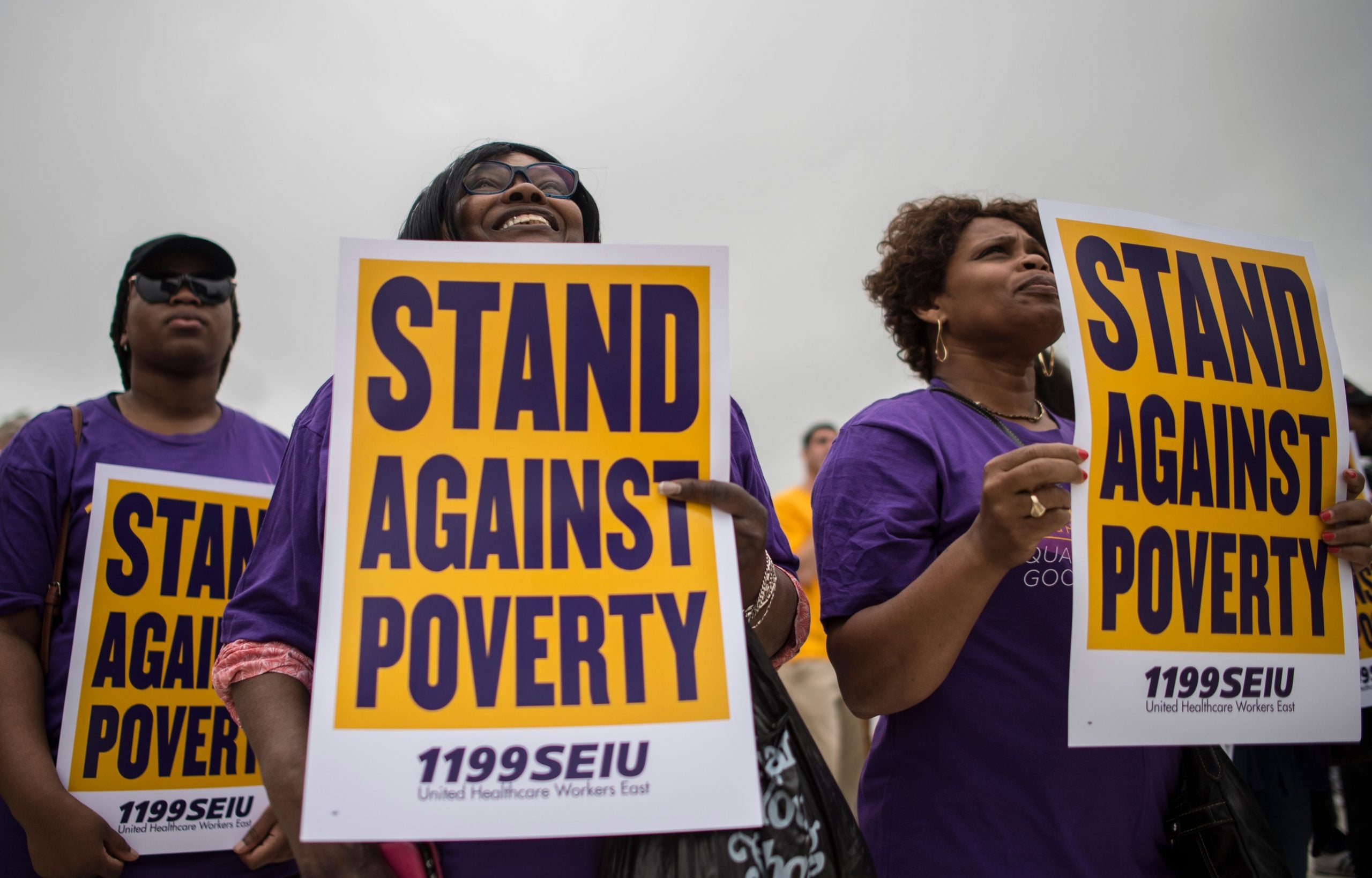
Against the backdrop of COVID-19, that mission presents a momentous challenge. According to the most recent Employment Situation Summary from the U.S. Bureau of Labor Statistics, the economy has made gains since the early months of March and April, but 9.2 million people remain unemployed at a time when unemployment benefits are left hanging in limbo. This time has been daunting for everyday Americans and politicians alike. But Moore says it has also “stoked my zeal and energy” to create more equity. “I just don’t think we can go back to the day before the pandemic struck, in terms of people having $7.25 an hour and trying to live off that, both eat and have a place to live,” she contends. “I mean, we always knew that was a problem.”
The cochair for the 2020 Democratic National Convention, originally scheduled for Milwaukee, says going back is simply not an option. Whether or not former Vice President Joe Biden and running mate Kamala Harris enter the White House on January 20, 2021, Moore is planning to do everything in her power to move the needle on national poverty. It’s why she’s both passionate and excited about one proposal in particular: an expansion on the Earned Income Tax Credit. Moore explains that her expansion would take into consideration the 140,000,000 people that the Poor People’s Campaign under Rev. Liz Theoharis and Rev. William Barber focuses on. “The people with low wealth,” Moore further iterates. It would also provide funding to those who can’t find affordable housing and adequate food on their low wages.
Moore describes the proposal as a “modernized” approach to the Earned Income Tax Credit. It would recognize workers, including those underpaid in the health care workforce, as well as financially assist elders and students. Under her plan, a couple would get up to $8,000 a year, and a single person up to $4,000 a year. For children who take care of their aging parents, they could earn $4,000 for their efforts. “It’s not much,” Moore confesses, “but I think that we need to [take this action] because this is a workforce that we’re relying on for the future.”
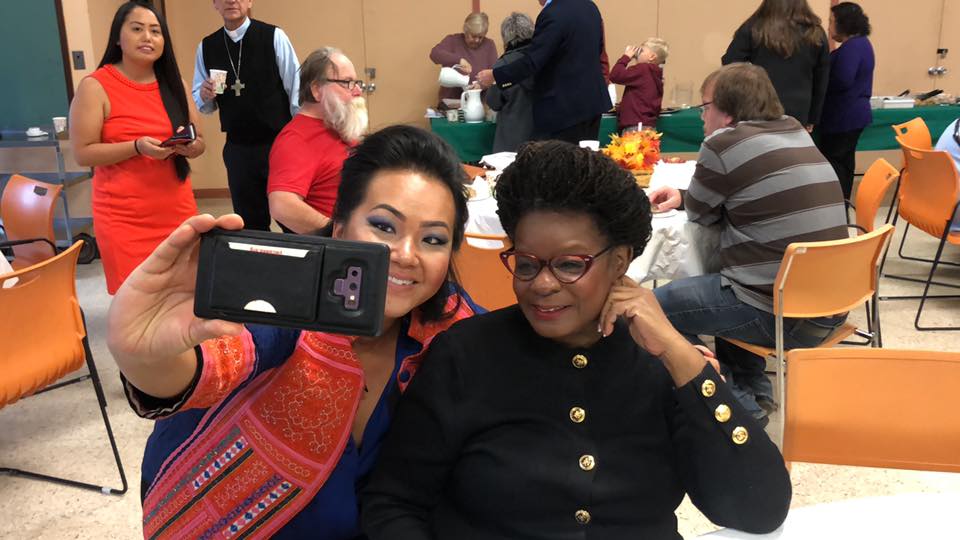
Though she’s one of the more senior members of Congress (currently ranked between 99 and 100 depending on who you ask), Moore is keenly focused on who and what’s forthcoming. Whether it’s assisting students out of debt to help contribute to their upward mobility or supporting the efforts of junior representatives who have been a lightning rod for change, Moore’s motto is “We can’t go back.”
“I tell you, I’m really proud of the young people that we brought in to Congress,” Moore says. “They’re feisty. They’re feisty and they’re smart. It feels really delicious to me, especially the young Black people who have come into our caucus. It’s what democracy looks like.”
Moore was around to experience the 1968 civil rights marches in Milwaukee and watched as they petered out in the aftermath of Martin Luther King, Jr.’s death. “I am so happy that this multicultural, multigenerational movement is afoot,” Moore excitedly reveals, “and it’s intersectional with equity, with climate justice and environmental justice, with health care for all, for providing just a fair shot for everybody. That is really everything that I have ever wanted in a public career.”
In the lawmaker’s tenure as a public servant, she’s learned to trust the process, all parts of it, in order to get the work of the people done. And she’s also come to the conclusion that the “show horses” around Congress aren’t always the ones who accomplish the most. “If you want to be effective, you can’t insist on your name being on the front page of every bill. You just have to kind of get in where you can fit in,” the former Democratic vice-chair for the Congressional Women’s Caucus asserts. Six years ago, Moore put a bill on the House Floor that would require de-escalation training for police officers. She confesses that it didn’t go very far, but she kept introducing it and collecting cosponsors. “All of a sudden, we have our Justice in Policing Act,” the pro-police accountability representative proudly states, “and that provision is blowing up to be possibly one of the sort of consensuses in the bill.”
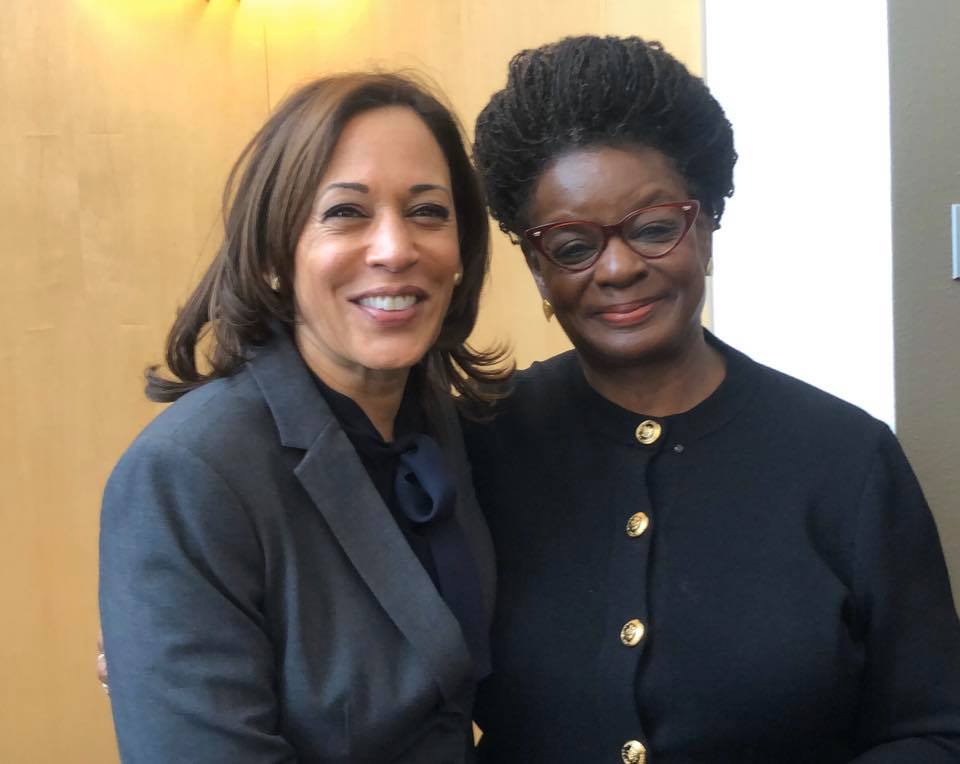
Moore credits it as a testament to her dedication, a notch to the stewardship she brings to the role she was elected to do. The year 2020 may have forever changed the world we live in, but the mom and grandmother doesn’t seem to mind. Holding fast to the “We can’t go back” affirmation her son imparted to her in the days after 9/11, she’s looking ahead to the future and excited for what it will bring. She’s likely praying it includes a House seat for herself and a state representative seat for her son: Supreme Moore Omokunde won the Democratic primary for Wisconsin’s 17th Assembly District. Now Moore will have two Zoom watch parties to plan this November.
